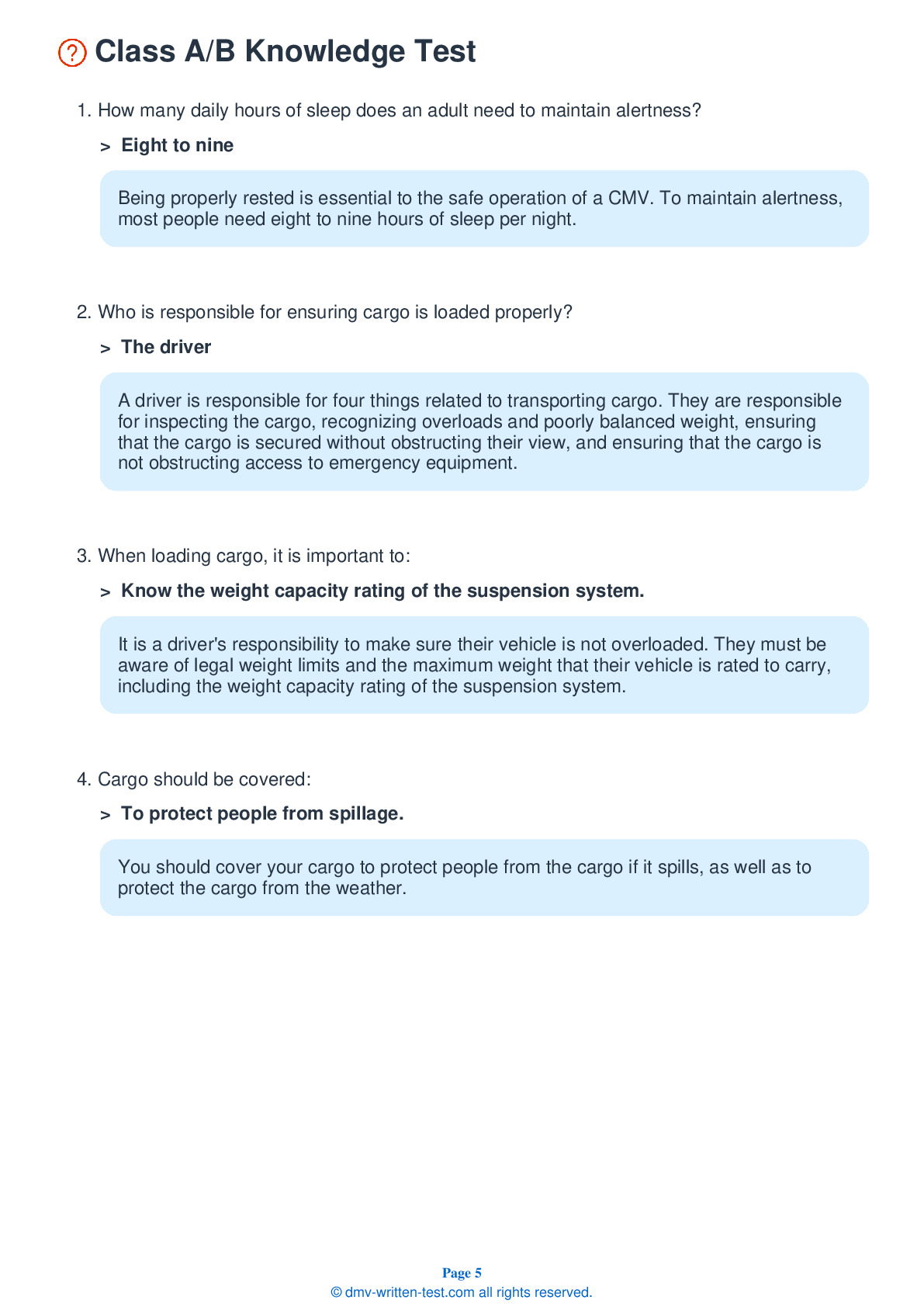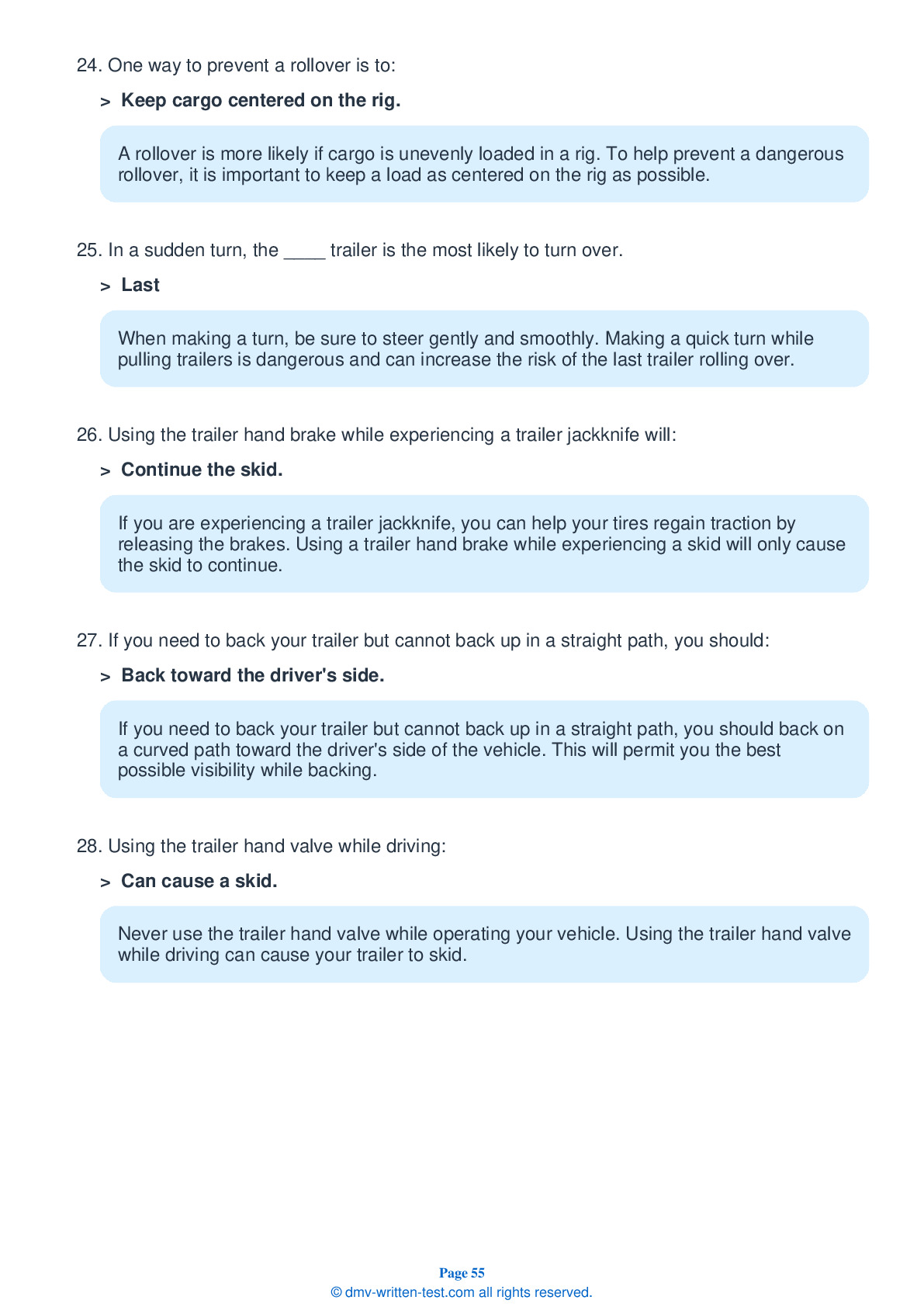Air Brakes
This endorsement is required for driving a vehicle with air brakes. To receive this endorsement, applicants must pass a written test. The test consists of 25 multiple choice questions. Each question has four answer choices. To pass, the applicant must answer at least 20 questions correctly. Test questions come from the Washington D.C. Commercial Driver License Manual. Questions come from the chapter covering: Air Brakes. The Air Brakes endorsement may be used with the Class A, B or C CDL.
Number of Question
Passing Score
7. While driving, spring brakes are generally held in place by:
Explanation
While driving, spring brakes are generally held in place by air pressure. If the air pressure gets low enough, the springs will activate the brakes.
8. How is water and compressor oil removed from the bottom of an air storage tank?
Explanation
Water and compressor oil are removed from air storage tanks through a drain valve. The water and oil can damage the brakes if left to accumulate in the system. Manually operated tanks must be drained every day to remove this build-up.
9. If using air tanks with manually operated drains, how often should you drain the tanks?
Explanation
In an air brake system with manually operated drains, the tanks should be drained at the end of each day of driving.
10. When the brake pedal is depressed, air brakes work:
Explanation
After the brake pedal is pushed down in a vehicle with air brakes, it takes a half-second or more for air to flow through the lines and make the brakes work. This contrasts with hydraulic brakes used in cars and light and medium trucks, which instantly begin working when the pedal is pushed.
11. The air storage tanks:
Explanation
In an air brake system, the air storage tanks hold enough air for brakes to be used several times if the compressor stops working.
12. What can happen if a parking brake is used in very wet weather when temperatures are below freezing?
Explanation




